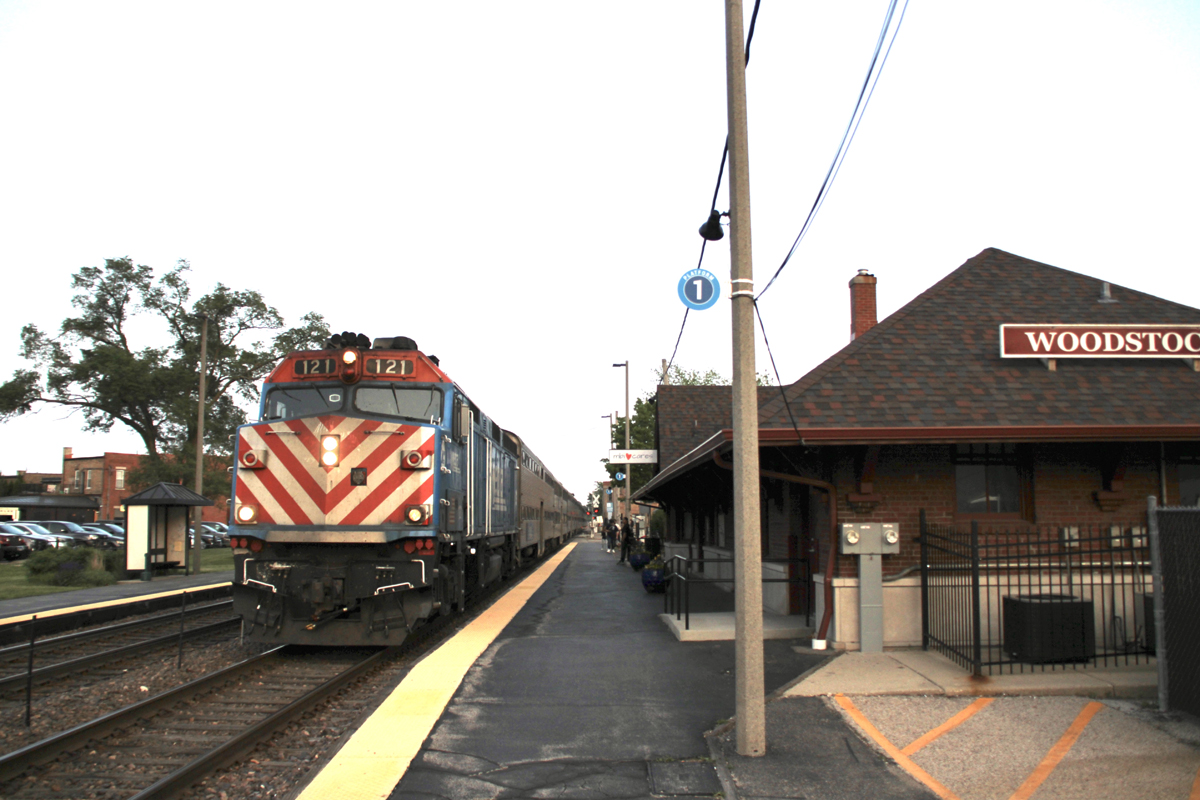
WASHINGTON — Rebutting a Union Pacific motion to dismiss, Chicago area commuter rail operator Metra says the Surface Transportation Board clearly has jurisdiction to address its request for trackage rights — part of its ongoing dispute with UP over financial terms for continued operation on three Union Pacific lines.
And in a turnabout — after UP revealed details of access-fee contracts for Metra and other operators in another STB filing, while redacting its own proposed fees — Metra’s June 12 filing has made public the UP contract, which it says include an increase of more than 100%, along with “other unreasonable and coercive terms and conditions.”
In May, Union Pacific called for the STB to dismiss the case, arguing that the “essential character” of Metra is that of an intrastate, not interstate, operation, despite the existence of one station in Wisconsin — and therefore is not a matter for the federal agency [see “Union Pacific asks regulators to dismiss …,” Trains News Wire, May 23, 2025].
Metra, in response, says that the law makes no such distinction about “essential character,” and that the existence of that one station on the UP North line in Kenosha, Wis., makes it an interstate operator. It also provides citations that the commuter agency was subject to the Interstate Commerce Commission prior to the dissolution of that agency and the establishment of the STB — a legal requirement to establish STB jurisdiction. Even a Metra request for an exemption from ICC oversight, included in UP’s filing to illustrate that Metra had previously claimed to not be subject to federal regulation, proves the opposite point, according to the commuter operator — because “the ICC necessarily determined it had jurisdiction when it granted the exemption.”
Metra also sharply disputes UP’s argument in its motion to dismiss that Metra was seeking to have the board provide access rather than achieving it through negotiation, although noting that has no bearing on the jurisdictional question. Trackage rights would give it the ability to negotiate, Metra argues; otherwise it would be “forced to accede to a 100%-plus increase in costs … along with a host of one-sided terms and conditions harmful to the public interests.”
Metra says that the UP contract for access, or “Conditions of Entry,” will be imposed on July 1, with Metra “barred from … operating its trains on the UP Lines unless Metra complies with its non-negotiated provisions.” Those provisions call for a usage rate of $18.50 per train mile, with a 2.9% increase each Jan. 1; Metra says this will more than double the current rate of $21 million annually. It also calls for additional payments for use of stations, platforms, yards, and other areas “previously included in UP’s [Purchase of Service Agreement] return.”
That rate, incidentally, is low compared to those UP included in its June 3 filing in the trackage-rights case, which range from $19.76 to $66.41 per train mile [see “Union Pacific urges STB to turn down …,” News Wire, June 5, 2025]. The fees cited by UP do not involve Union Pacific and do not include the full context of the agreements, however. Fees for UP’s other passenger and commuter agreements were redacted in that filing, as were its terms for Metra.
Metra also says the contract — included in full as an accompanying exhibit — would make Metra responsible for all capital expenditures for the lines involved, and provides no assurances of providing on-time performance beyond “reasonable efforts to minimize disruption of Metra’s schedule.”
The filing’s concluding argument is that UP “has raised no legal or factual basis” to support its claim that the STB has no jurisdiction, and that the new UP contract to take effect July 1 — after the current contract expires — “confirm the need for the Board to exercise its discretion to grant the remedial relief.”






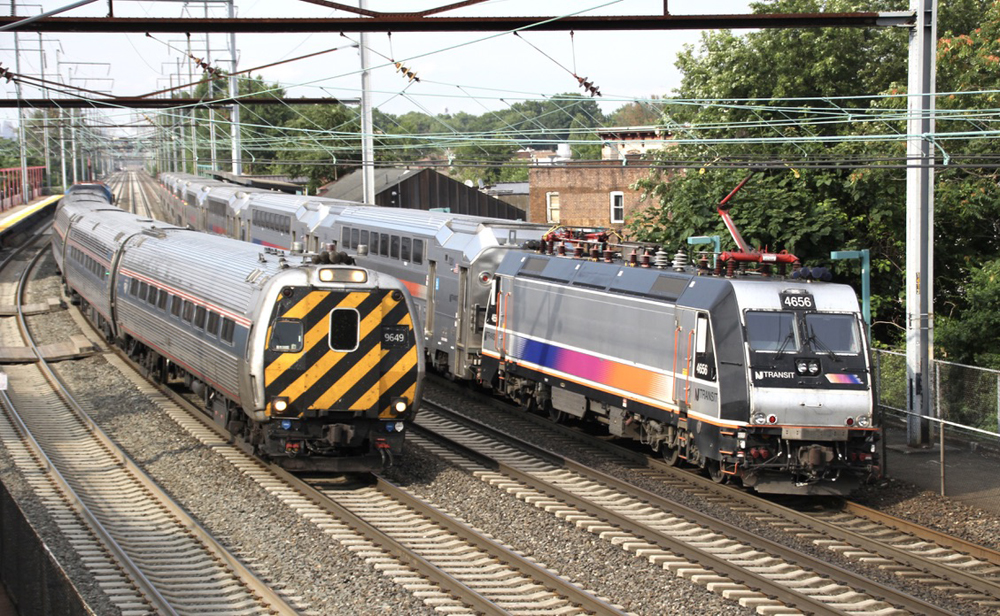
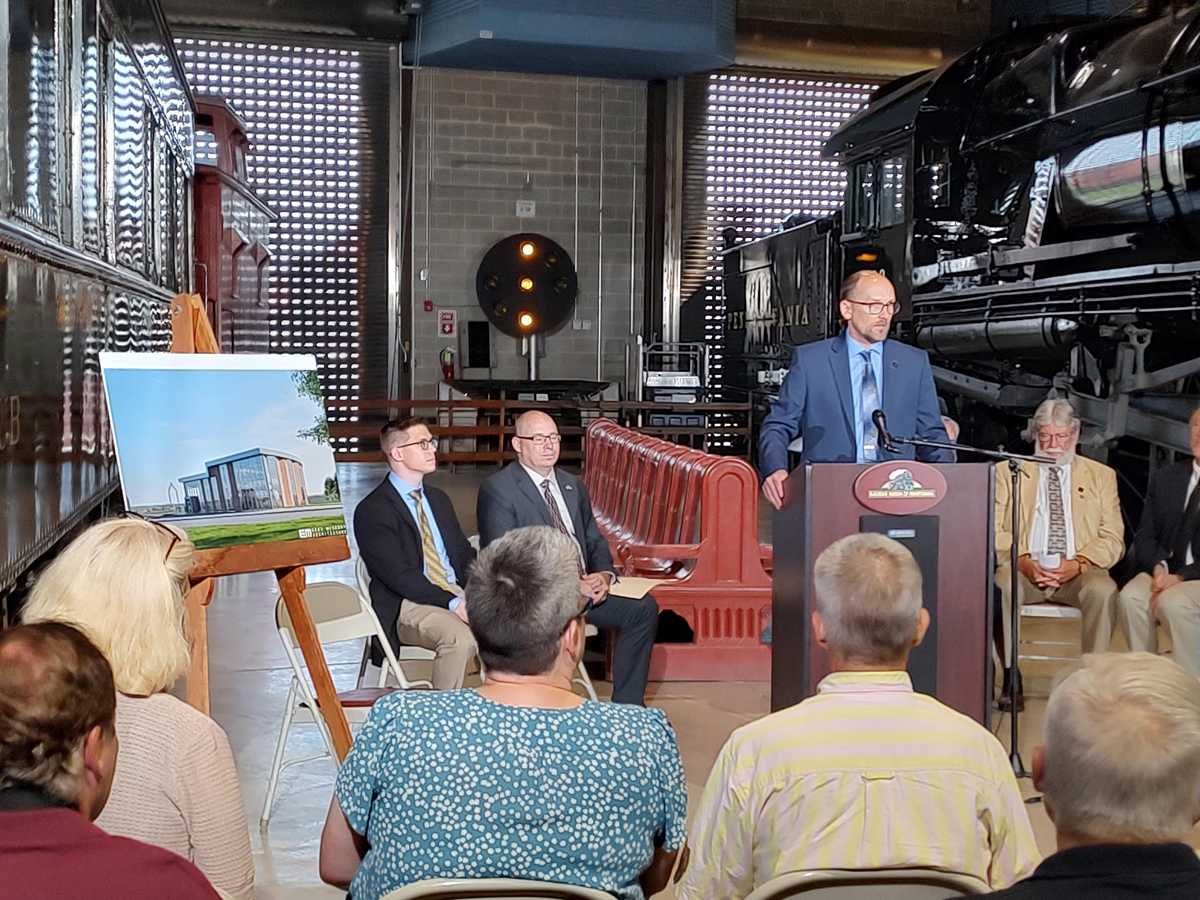
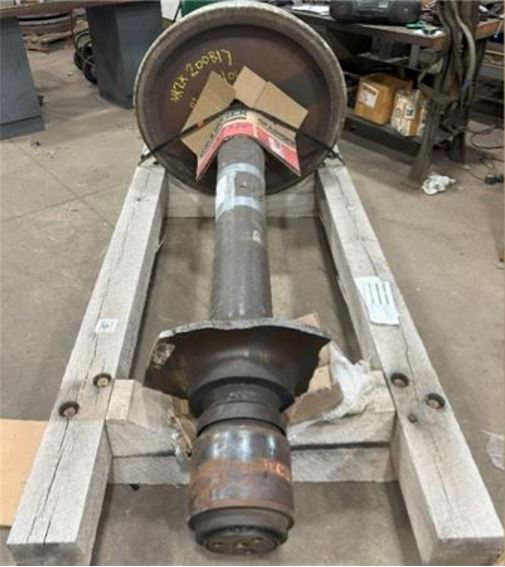
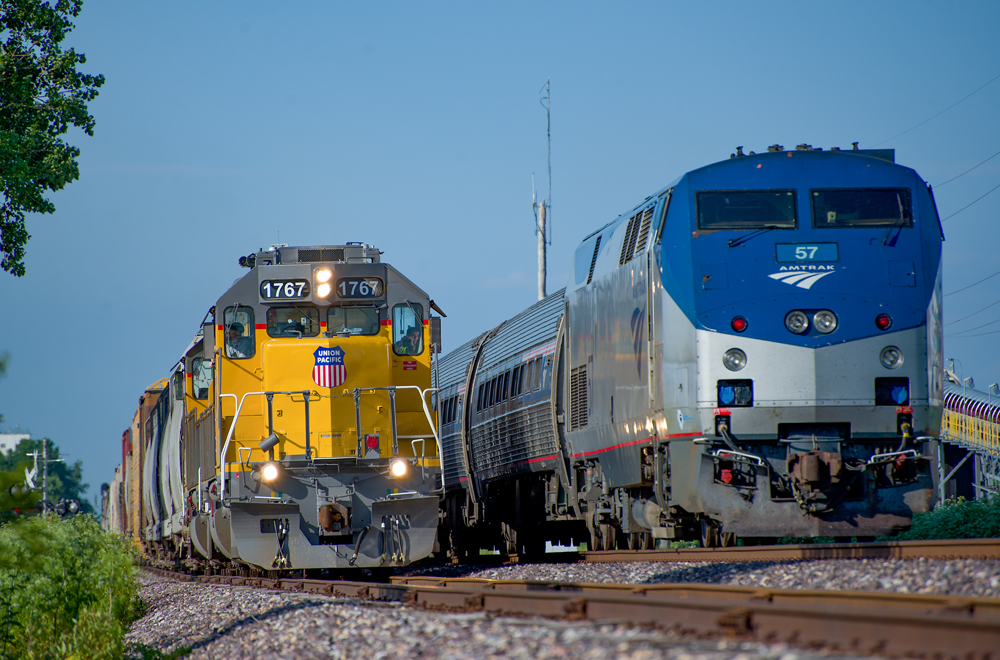




We should expect UP to make these very high demands. If it didn’t the stockholders could vote out all management and directors. The take over vultures always look for some poor excuse to suck a RR dry. It will be no surprise if this rate case take 2 =3 years to go thru STB and then the courts. By then an equitable rate may have been agreed upon.
If all of this hoopla gets resolved will the UP have a 30th Anniversary celebration, as this is how long they have wanted and tried to be rid of the commuter operations.
Charles, I do not believe $42M in fees proposed by UP can be reasonably construed as equitable compensation for METRA’s use. It is extortion. Surely there is a marginal cost, but how about honest independent public accounting of UP? The plan here is obviously to drive METRA off the UP or reap extortionate profits at public expense.
MBTA is a poor example; the state outsourced operational and maintenance expertise and simultaneously dumbed down its own workforce rendering them as paper-pushing contract administrators. Much like the big fail of California HSR. Newsom even bragged about outsourcing. Lots of money to be made by consultants and contractors! Public expertise in France, Switzerland and China deliver the services the public deserves.
All the class 1s are doing it to Amtrak and commuter agencies. These fees place passenger rail in a doom loop. It is part of the plan.
When the new public agency called the Chicago Transit Authority (CTA) was formed in 1947, they had several interurban lines using their elevated tracks to reach either the Loop or their own stations.
It was discovered later that some of those interurbans had been getting a “free ride” on the lines now owned by the agency. One interurban (CA&E) had not paid a trackage or electric fee to the former CRT (Chicago Rapid Transit) since the depression to reach their private station on Wells Street. (it was reportedly a reciprical agreement)
When the Congress Expressway Extension was built they were going to push the CA&E to street running to reach their station until the road (now Eisenhower Expressway) was finished, which CA&E objected. The CTA reminded the CA&E that they had not paid a cent in “track rent” for some 25 years and had no leg to stand on when complaining. So CA&E terminated their track at Laramie Avenue.
There were other issues, political and operational at play here, but the point I am making is that there is no free lunch when using someone’s capital asset (in this case UP’s tracks) that much of it is no longer hauling the large amounts of freight on them to pay the way. So UP says, hey you have to pay your way. I get it.
What I don’t like is the willingness of our legislators to fork over large amounts of dough (like CREATE) to improve freight efficiency, or large federal/state grants to improve their ROW then the same benefactor turns around and says, “pay your way or leave”.
The State of Illinois and the FRA has provided billions of dollars to UP to upgrade the former Alton line to support higher speed passenger rail, which has benefitted UP immensely by not only getting better track but also beter signaling on the ROW.
So you can see why I call uncle on the UP to some degree. They should get something for the use of their asset, but it should be a phased in arrangement or some kind of net based on the huge “subsidies” UP gets to operate freight in the state. Subsidies that help their bottom line, that reduce their capital outlay, that improves their ability to do stock buy backs, which help shareholders, which help hedge funds.
Seize the trackage with eminent domain. Then soak UP for transit rights for freight to recoup purchase price. Class 1s all behave like the robber barrons of 150 years ago.
GREGG —- I understand your emotion and I get you point. UPRR has no sympathy from most of us reading these pages. However, this is a case of being careful of getting what you wish for.
Where publicly-supported passenger trains run on private freight railroads, it’s questionable if the public sector provides fair compensation. A case can be made that the passenger train is getting something of a free ride.
Where the rails are publicly owned (i.e., much of MBTA suburban trains) the public agency has to budget for maintenance and improvement of roadbed and bridges. No free lunch.
Hello Charles,
You bring up a good point, and one that needs to be explored. Metra (much like the MTBA you cite) owns or leases many of the rails it runs passenger trains on, including the Milwaukee North line, on which CP(KC) runs occasional freights (and on which Amtrac runs the Hiawathas and your favorite Boring Alice). Metra should acquire the UP North and Northwest lines (and charge UP for the very occasional freights it runs). The UP west line is more problematic, as it is their main line west — and I don’t have an idea as to how to solve that dilemma. I agree that Eminent Domain is not the answer, but acquiring al least the North and Northwest would more level the playing field.